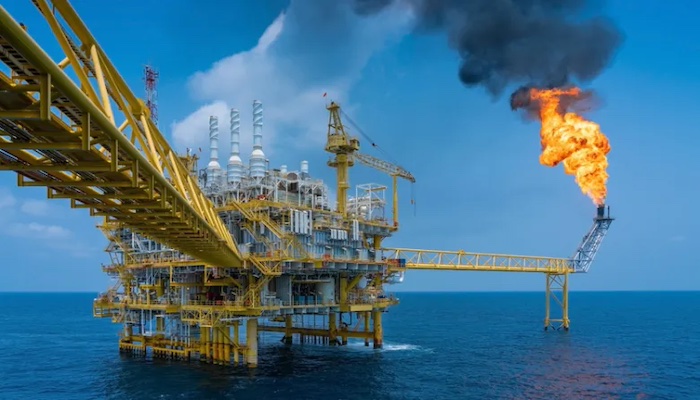Ghana’s crude oil production has experienced a remarkable 10.7% year-on-year increase in the first half of 2024, reversing a five-year decline.
According to the Public Interest and Accountability Committee (PIAC), this growth was primarily driven by the Jubilee South East (JSE) project operated by Tullow Oil.
The country’s petroleum revenue also surged by 56% year-on-year, reaching $840.8 million by June 2024. This significant increase is attributed to the rise in oil output, which reached 24.86 million barrels by June, compared to a 13.2% decrease during the same period in 2023.
Although oil production in Ghana began in 2010, it has been declining steadily since 2019 due to reduced production in existing fields. However, the JSE project’s commencement in late 2023 has revitalized the sector.
- Advertisement -
In a related development, Ghanaian President Nana Akufo-Addo launched the construction of a $12 billion oil refinery with a capacity of 300,000 barrels per day. The petroleum hub project aims to meet West Africa’s growing demand for refined oil products and by-products by 2036.
Constantine Kudzedzi, the chairman of the PIAC, stated that the increased production was the primary cause of the notable increase in revenue.
He emphasized the need for Ghana to maintain the current growth trend to ensure a better overall performance by the end of the year.
In spite of these, challenges persist in Ghana’s petroleum sector. One of which is the country’s laws that require petroleum companies to allocate at least 12% of every project to the state as free and carried interest, which can be costly for investors.
To address these challenges, Ghana plans to sell more exploration rights to prevent stranded fossil fuels and generate revenue for its energy transition.
- Advertisement -
The PIAC report also highlighted concerns regarding surface rental arrears, the Ghana Stabilisation Fund, and the need for the Ghana National Petroleum Corporation to establish a reserve fund.










